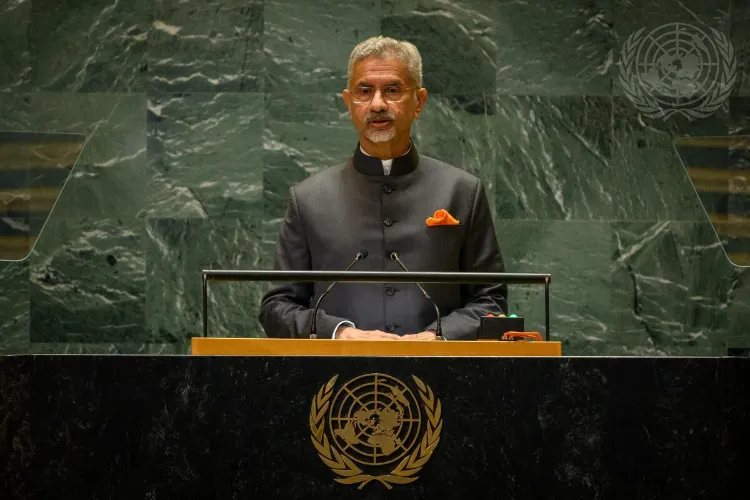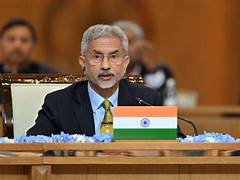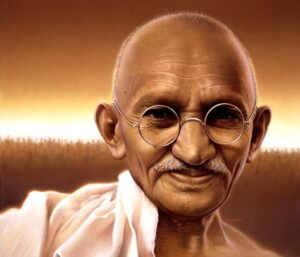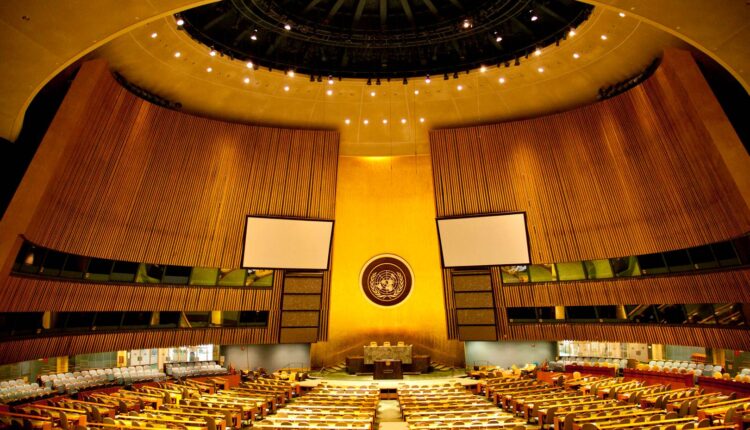The easiest way for India to secure a seat at the UN Security Council
By: Dr. Ghulam Nabi Fai
Dr. Ghulam Nabi Fai
Chairman
World Forum for Peace & Justice
September 29, 2025
It is one matter to be in violation of United Nations resolutions, but it is altogether inconceivable to seek reward for those very violations. Yet India aspires to a permanent seat on the United Nations Security Council while remaining in breach of the Council’s own resolutions on Jammu and Kashmir—commitments it undertook as early as 1948. Moreover, these violations extend to the Fourth Geneva Convention, several provisions of the United Nations Charter, International Covenant on Civil and Political Rights (ICCPR), and the Universal Declaration of Human Rights.

Dr. Subrahmanyam Jaishankar, the foreign minister of India said on September 17, 2025 during the 80the session of the UN General Assembly that “On the question of multilateral institutions: they must become more representative, more legitimate, and more fit for purpose. The Security Council in particular needs reform — expansion that reflects contemporary realities, so the Council can claim the legitimacy to act effectively. India has the credentials, the record and the stake in a reformed Council, and will continue to press for a voice for the Global South.” He added that “Ukraine, Gaza, and other theatres of conflict remind us that peace is fragile. Where there is conflict, the first priority must be to protect civilians, ensure humanitarian access, and seek negotiated, just and lasting solutions. We must strengthen institutions that prevent the spillover of violence and ensure accountability for violations of international law.”

Dr. Jaishankar, an alumnus of one of the most prestigious universities of India – Jawaharlal Nehru University – seems to believe that by resorting to Shakespearean English at the United Nations, he can impress the audience and divert attention from the reality that India continues to disregard the fundamental commitment and underlying obligation which Government of India gave at the United Nations to the people of Kashmir as early as in 1948.
Does honorable foreign minister of India know that there was much in the submissions at the United Nations regarding Kashmir that was controversial, but the proposal of a plebiscite was not? This is clear from the statement made on January 15, 1948 by Indian delegate, Sir Gopalswamy Ayyangar, at Security Council,” The question… Whether she [Kashmir] should withdraw from her accession to India, and either accede to India or remain independent, with a right to claim admission as a member of the UN – all this we have recognised to be matter for unfettered decision by the people of Kashmir after normal life is restored there.”
Is he also aware that Sir Benegal Rama Rau, the Indian delegate said at the Security Council on January 13, 1949, “On behalf of my Government, I can give the assurance that it will not only cooperate to the utmost with the Commission itself towards a settlement in Kashmir, but also with the United Nations in securing peace everywhere.” Sir Rau later said, “The people of Kashmir are not mere chattels to be disposed of according to a rigid formula; their future must be decided on their own interest and in accordance with their own desires.”

Is Jaishankar Ji informed that Prime Minister Modi said on Marech 17, 2025, “Mahatma Gandhi was the greatest leader of centuries.” May I urge the honorable foreign minister to show due respect to Mahatma Gandhi – the father of nation of India by upholding the promise he made to the people of Kashmir that “They (Kashmiris) should be left free to decide for themselves.” And on July 29, 1947 Gandhi said in Delhi, “The real sovereign of the state are the people. The ruler is a servant of the people. If he is not so then he is not the ruler. This is my firm belief, and that is why I became a rebel against the British – because the British claimed to be the rulers of India, and I refused to recognize them as such. In Kashmir too the power belongs to the public. Let them do as they want.”Is Dr. Jaishankar familiar with two reports issued by the United Nations High Commissioner on Human Rights (UNHCHR) on June 14, 2018 (53 pages) and July 8, 2019 (47 pages)? These reports contain graphic documentation of human rights violations being committed by the Indian military and paramilitary forces in Kashmir. This was a significant step towards greater international recognition of the serious abuses committed against Kashmiris at the hands of Indian army.
These reports cite specific incidents where the Indian Government violated the very principles of human decency and democratic freedom against the people of Kashmir. These reports detail many instances where the use of draconian laws has given sense of total impunity to the Indian army in Kashmir. The report underscored that “Impunity for human rights violations and lack of access to justice are key human rights challenges in the state of Jammu and Kashmir.”
These UNHCHR reports make 17 recommendations to the Government of India so as to bring these atrocities to an end, including the most pertinent recommendation that: “Fully respect the right of self-determination of the people of Kashmir as protected under international law.”
Has Dr. Jaishankar been told that UN Office of the High Commissioner on Human Rights urged India on August 17, 2016 to grant independent observers access to Kashmir to prepare OHCHR reports. But visas were never granted. Also, several UN Thematic Special Rapporteurs asked India to grant them visas to visit Jammu and Kashmir, but never allowed. They included among others the following: Juan Méndez, former UN Special Rapporteur on Torture; Agnes Callamard, Special Rapporteur on Extrajudicial, Summary or Arbitrary Executions; Dainius Pūras, Special Rapporteur on the right to health; Nils Melzer, Special Rapporteur on Torture / other cruel inhuman degrading treatment; Fernand de Varennes, Special Rapporteur on Minority Issues; Ahmed Shaheed, Special Rapporteur on Freedom of Religion or Belief.
Whether Dr. Jaishankar knows that the Indian government has also denied visas to the delegation of US Commission for International Religious Freedom (USCIRF) in 2016. Again in 2020, India did not grant visas to the delegation of USCIRF.
It is indeed remarkable that when the USCIRF designated India as a ‘country of concern,’ the Government of India chose not to engage with the substance of the criticism but instead retaliated by labeling USCIRF as an ‘entity of concern.’ One must ask: does such a reaction constitute a credible response, or would it not have been more appropriate for India to provide access and transparency in order to clarify and improve its human rights record?
Jaishankar Ji, from the detailed account I have presented, it is clear that your appeal for a permanent seat at the United Nations Security Council has a long way to go. The simplest and most civilized path would be to first honor the UN resolutions on Kashmir, demonstrate adherence to international law, and fulfill India’s obligations toward the people of Kashmir. Only then can the call for an elevated role at the United Nations carry genuine credibility.”
In conclusion, India cannot sweep all the facts under the galicha. The truth is too painfully obvious. Isn’t it time that world powers, including the United States ask the people of Kashmir what they really want? Perhaps that would force the parties to actually deal with what is at the heart of their differences, the aspirations of the people of the State of Jammu & Kashmir.
Dr. Ghulam Nabi Fai is also the Secretary general, World Kashmir Awareness Forum
He can be reached at: WhatsApp: 1-202-607-6435. Or gnfai2003@yahoo.com




Comments are closed, but trackbacks and pingbacks are open.